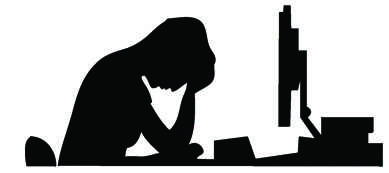Educational technology, which includes things like Chromebooks and Google Drive, has the potential to be incredibly beneficial. It makes many parts of learning faster and simpler; it streamlines student to student and student to teacher collaboration; it saves lots and lots of paper. But it brings with it several issues whose impacts can and should be mitigated.
One such issue is that the immediate gratification which the internet grants has superseded the need for actual, in-depth learning, and both students and teachers are affected. It’s less necessary to internalize information because that information will always be available at our fingertips, an ideological loss for obvious reasons and a practical loss because by the time tests roll around and knowledge is actually required we’ll all be worse prepared.
The prevalence of comprehensive databases such as Wikipedia is also a factor; while it’s ridiculously convenient it’s also easy to skim for answers without gaining context or learning anything beyond the bare minimum. And the omnipresence of every piece of information ever means that a greater emphasis is placed on learning information, and that accordingly less time is spent on learning skills, which is perhaps good at preparing students for tests but comparatively awful at preparing them for the real world.
Teachers are affected in a similar way. In the face of the cornucopia that is YouTube academia, for instance, they can more easily delegate parts of their job to the machine. That’s not always a bad thing, since third-party sources like Crash Course are generally excellent at providing supplemental material, but the ease of teaching through ready-made media (although this problem existed long before the internet via workbooks and textbooks) means that when teachers lean too heavily on those sources they stop teaching themselves.
Educational technology can also foster confusion, or, in more drastic cases, its toothier cousin, academic dishonesty. Take for example Google Classroom: Why were those questions posted online if you didn’t mention them in class? Was that due at 8 this morning or at the end of the period or at midnight? The problem isn’t so much that these questions are difficult to answer — common sense and general togetherness usually do the trick — but that they provide an easy excuse for students to consistently turn in late work. Other uses of technology are more blatant in their enabling of cheating. Tests in the computer lab, for example, are often conducted with internet access and insufficient supervision, and, schoolwide, plagiarism of anything and everything is laughably easy.
Technology itself is also inherently distracting. Even when they’re allowed, devices like Chromebooks can lead to situations like students playing video games or watching movies in class. It’s also worth noting that everything being online lessens the need for legitimate human interaction; that is, making activities more digital makes them less interpersonal, which is maybe OK, depending on how much you like people.
Three caveats: first, again, that technology is generally a force for good, and that the bulk of this editorial focuses on its negative impacts shouldn’t be misinterpreted; second, that those negative impacts are generally not the creation of new problems but the catalyzing of existing ones; and third, that the system is basically functional as it is — but it could be better.
Then: most of those problems have fairly straightforward solutions, straightforward enough at least that they aren’t explicitly laid out here. (Teachers might sidestep the chaos of Google Classroom, for example, by establishing reasonable ground rules for their assignment system and consistently adhering to them.) But the first step to effecting those solutions is being aware of the problems, which is what this editorial, by no means an exhaustive list of all the ways tech can negatively impact us, aims to do. Students and teachers both should be mindful of how the changing world is changing them too, and be careful not to lose their balance.


